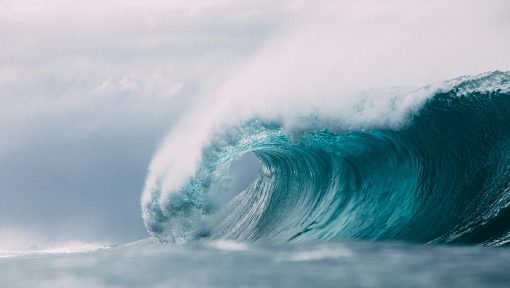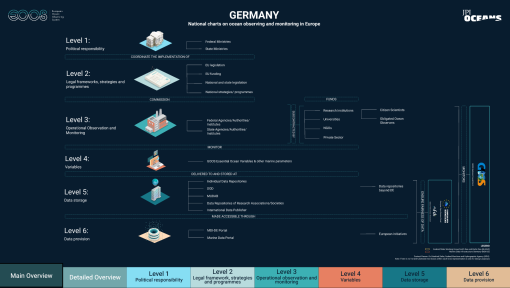
A survey of the GOOS National Focal Points from 27 European nations was conducted by the European Ocean Observing System to understand the national coordination, drivers, focus and funding sustainability of ocean observing and marine monitoring.
The report reveals funding for ocean observing and marine monitoring is uncertain with no existing mechanisms to access long-term funding (6-10 years) for over 55% of marine monitoring and 63% of ocean observing. Only 48% of ocean health, 42% of ocean climate and 37% of operational services observations have access to medium (3-5 years) or long-term funding (6-10 years). This is despite policy, management, real-time decision making and statutory requirements driving 65% of these observations, all of them of important societal and economic benefits.
To secure the long-term funding of ocean observations, their importance needs to be recognised by the different sectors. Yet, in most nations, there seems to be low awareness by the public, industry, and government about their importance.
The national funding structure for ocean observing and marine monitoring in many countries is intricate, with multiple sectors, including government, private industry, research, and international organisations, participating and funding these activities. For example, national government is the largest participant in marine monitoring (46%) while research and education are the largest participant in ocean observing (44%).
Nevertheless, there are encouraging signs in national coordination and information sharing in ocean observing and marine monitoring within and between nations.
The overview provided by the GOOS National Focal Points for Europe provided in this report presents an initial snapshot of national ocean observing and marine monitoring. The report provides a basis for the EOOS Operations Committee work.
 EOOS Steering Group submits key recommendations to 2025 MFF Consultation
EOOS Steering Group submits key recommendations to 2025 MFF Consultation
 EOOS responds to the European Oceans Pact Call for Evidence
EOOS responds to the European Oceans Pact Call for Evidence
 National Charts on Ocean Observing and Monitoring now available
National Charts on Ocean Observing and Monitoring now available